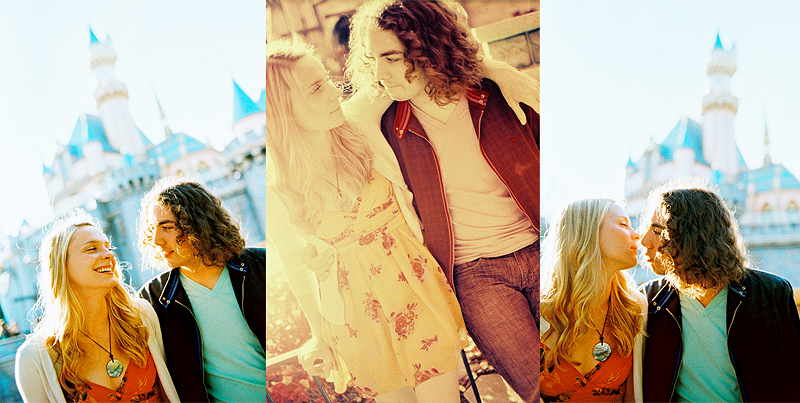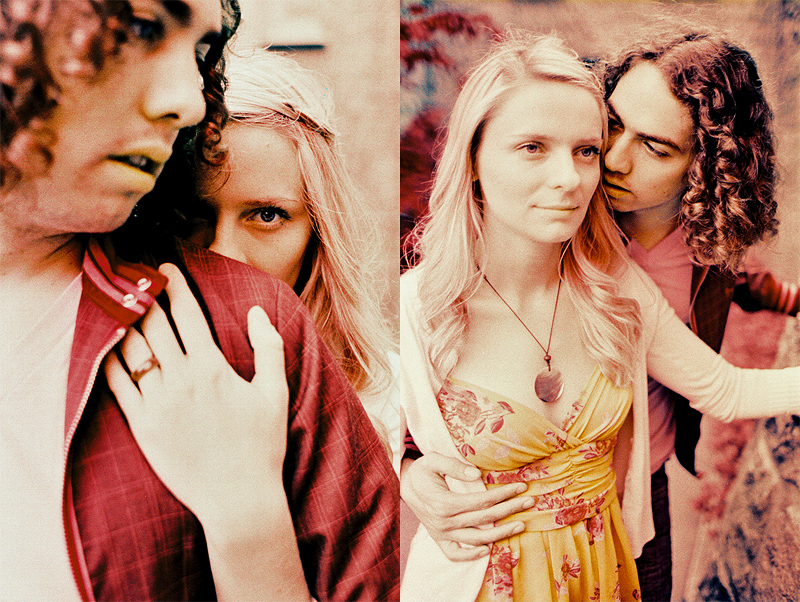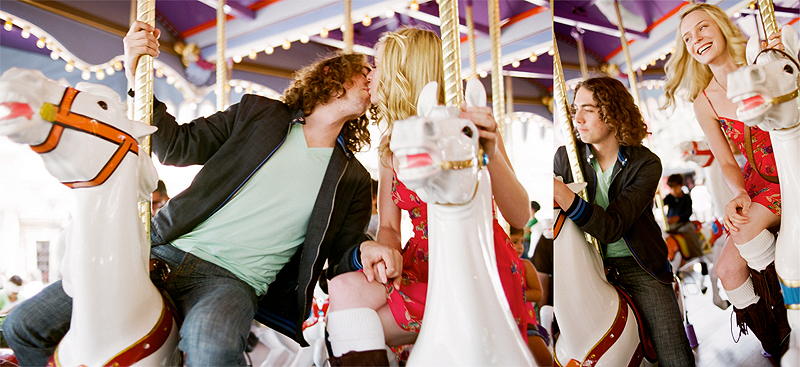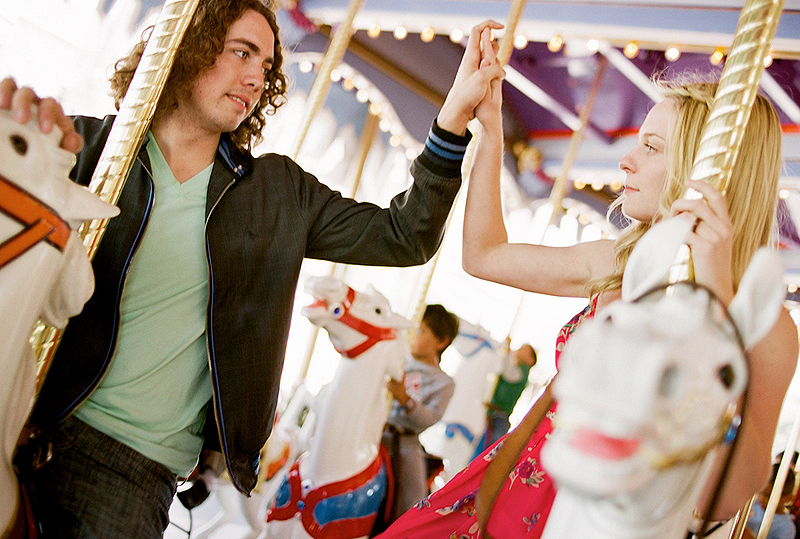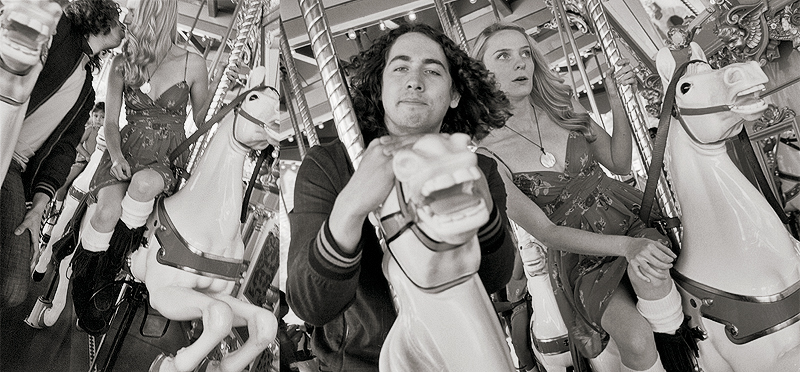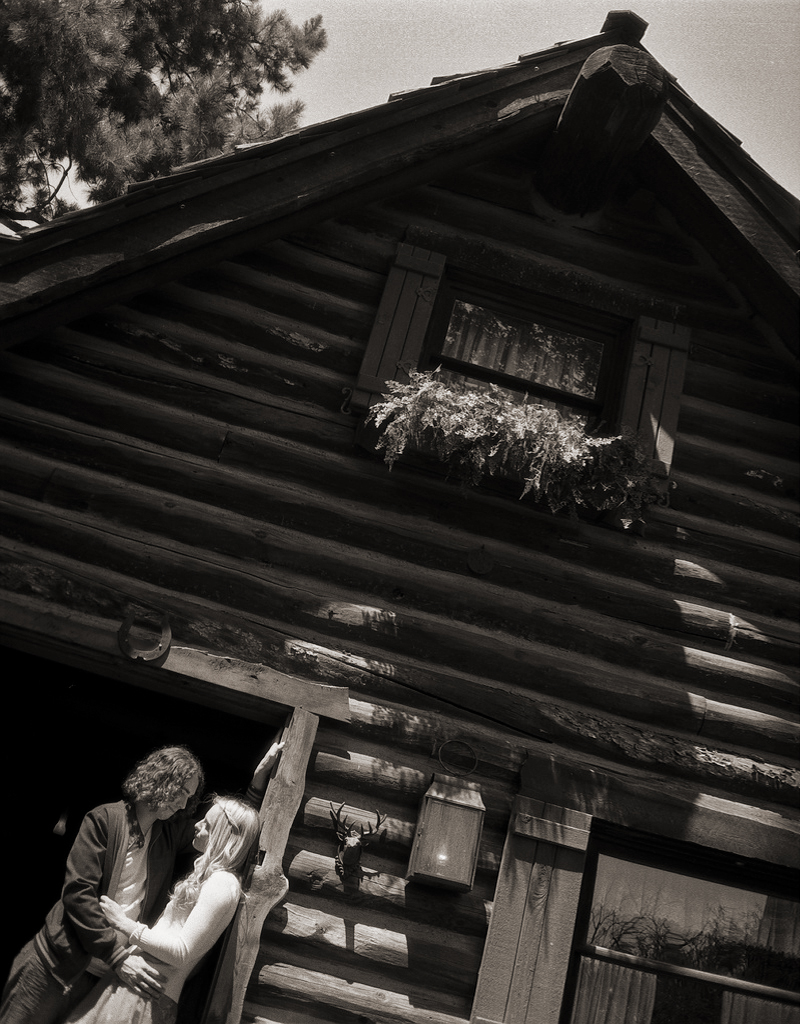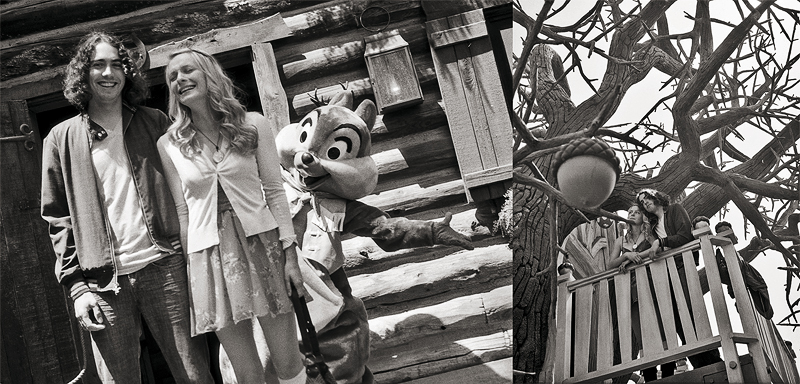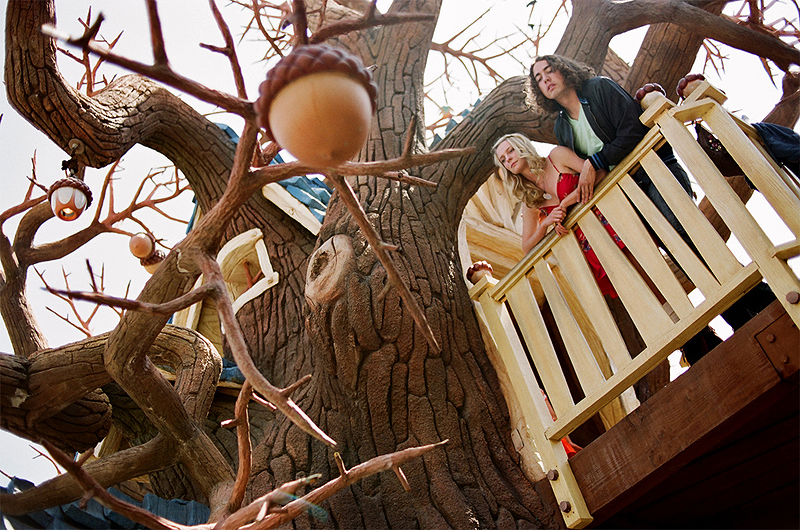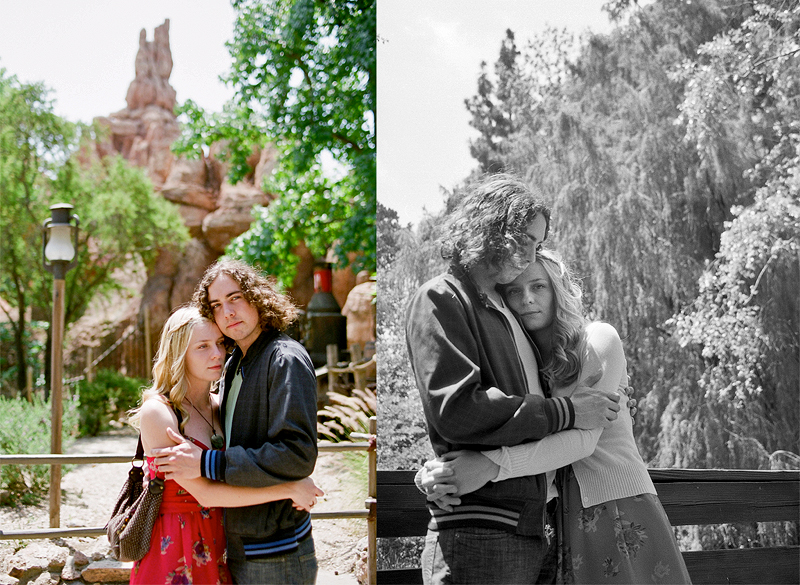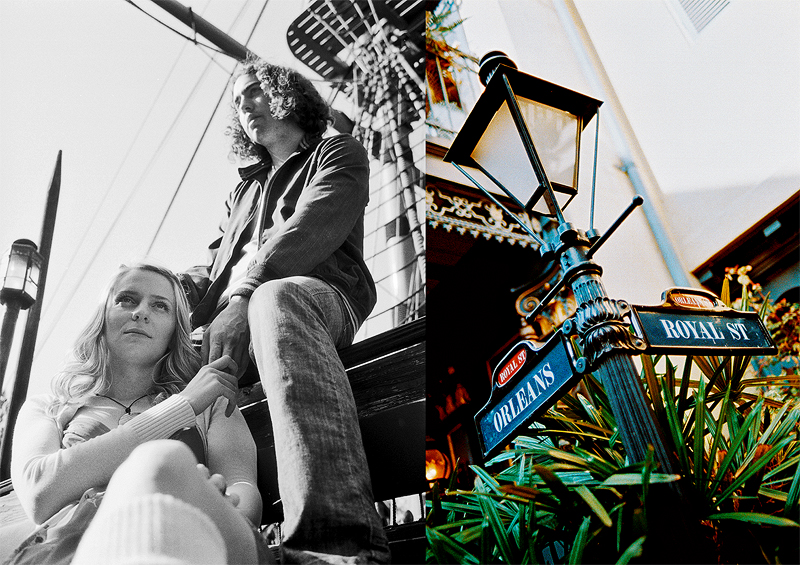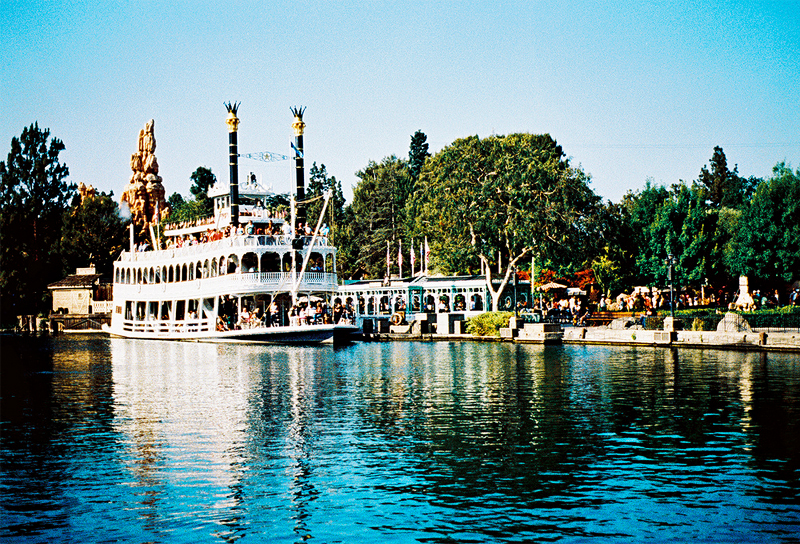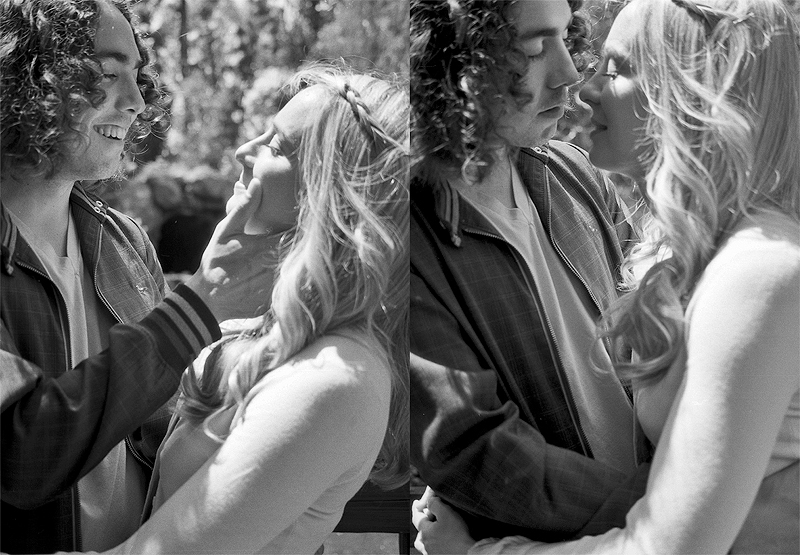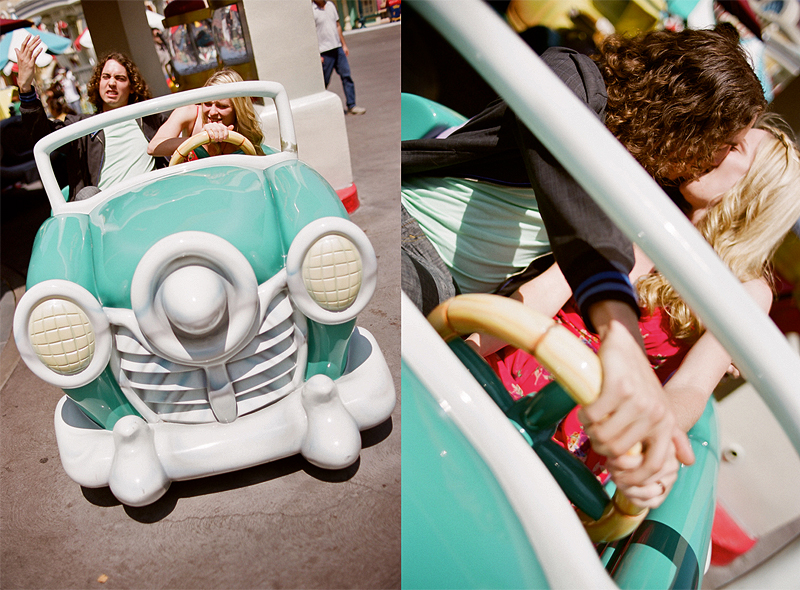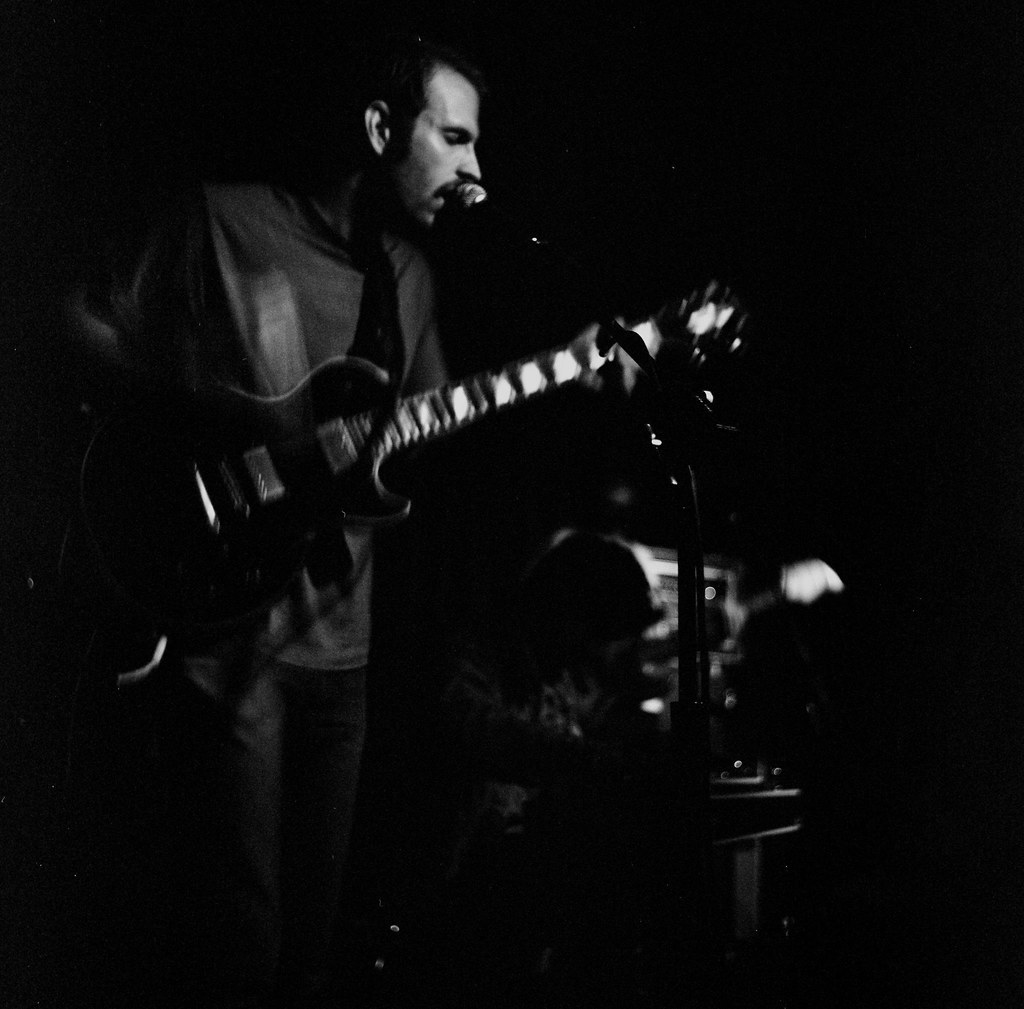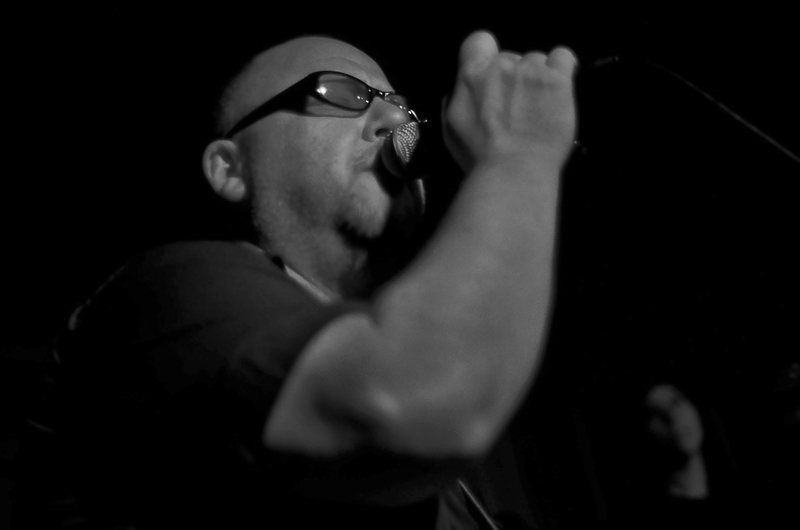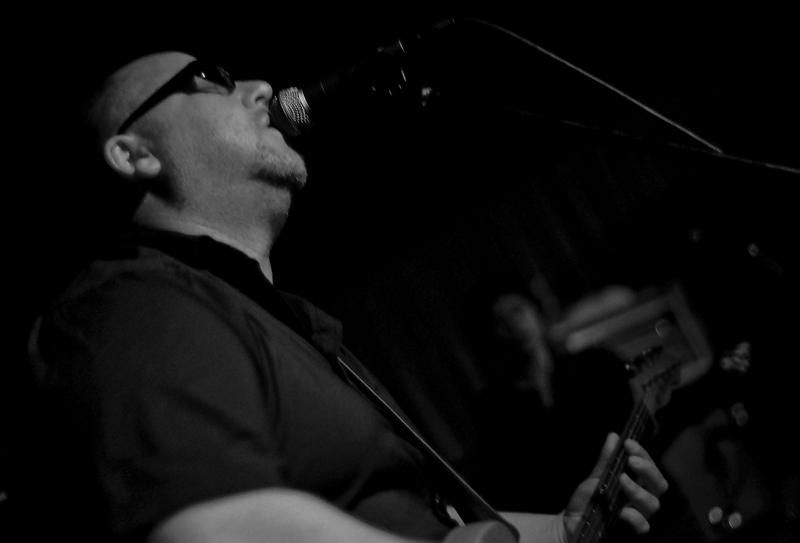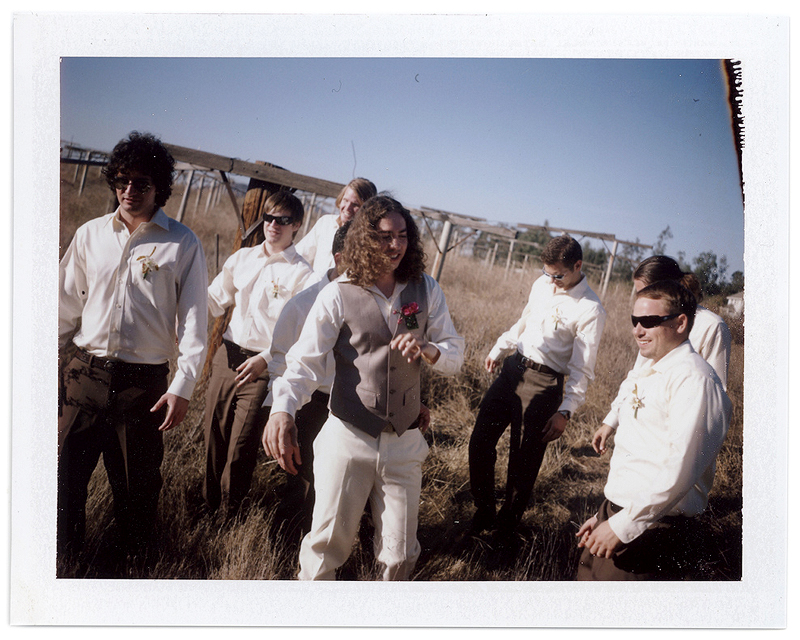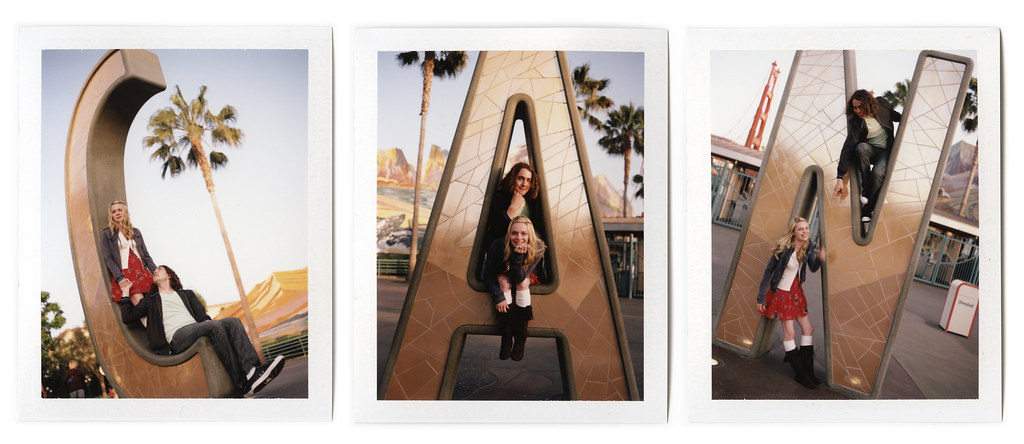When Chad and Christine wanted to have their engagement photos done at Disneyland my first though was, "How fun would that be!" But my initial reaction was a bit more skeptical, because I realized how difficult it would be to try and create intimate photos among the hordes of tourists and cast members that ebb their way through that Magic Kingdom every day. The first thing we worked out was the approach. We wanted to capture the "magic" but not so much the "Disney" of D-land. So we agreed to shoot Infrared color and black and white film, along with some cross processed slide film to help to create the surreal ambiance that we were going for. This color infrared film was designed to be processed in E-6 but we processed it as negative in C-41 chemistry at Richard Photo Lab (if you would like to know anything more about how this all works feel free to comment). We arrived at disneyland in the afternoon and basically just improvised the rest of the day, while trying to be as discrete as possible. I'm pleased with what we got, but we really just scratched the surface of what the Magic Kingdom has to offer. Enjoy.
